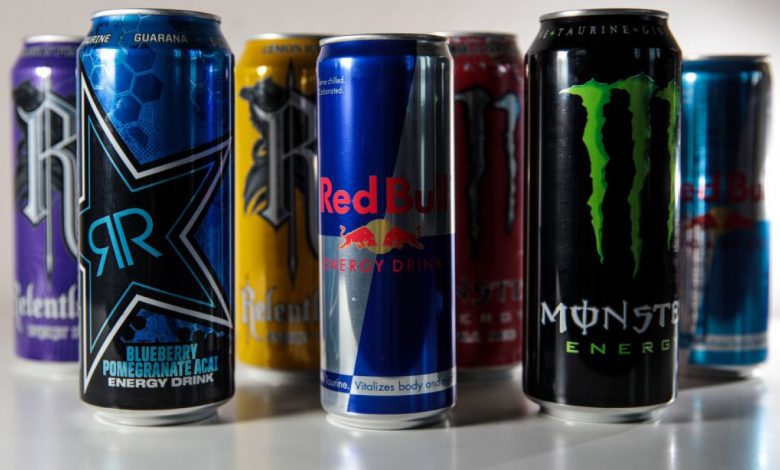How safe is your favourite energy drink?

A lot of people I know consume energy drinks at least once a week. In fact, I met a truck driver some months back who declared that he hasn’t gone a single day without drinking the beverage in four years.
I’ve seen them used to make cocktails in clubs and bars. When I travel overnight, I pack one can, just in case I need it. Many people will agree with me that energy drinks have grown in popularity over the past few years. Even without actual data its clear to see the trend.
10 years ago you had to look around to get any brand of energy drink, but nowadays its sold on every street corner, sometimes at prices much cheaper than those of the conventional carbonated beverages.
In South Africa (where most of ours are sourced) the annual volume of sports and energy drinks consumed rose from 98 million liters to 168 million liters from 2009 to 2014. Today’s article will seek to highlight possible reasons for the rise in popularity of energy drinks as well as the impact they have on our health.
What makes up most energy drinks?
An energy drink is any beverage that contains high levels of a stimulant ingredient and that is promoted as a product capable of enhancing mental alertness and physical performance.
The definition is not very important as this article focuses on those products marketed by their manufacturers and energy drinks. The main ingredients of these products are caffeine and high levels of certain vitamins and typically some proprietary ingredient that is not well described.
Energy drinks keep consumers awake longer than normal and this can be attributed to the elevated levels of caffeine. One energy drink popular in our stores has three times the amount of caffeine you would get in a cup of instant coffee.
The jury is still out on other ingredients such as taurine and the B vitamins. Caffeine is the main ingredient of coffee and has a stimulating effect on heart, central nervous system, blood vessels and kidneys.
Caffeine toxicity occurs when too much is consumed in a short space of time. Long term consumption of high levels of caffeine has negative effects on the body as well.
The second ingredient worth discussing is Vitamin B12 and Vitamin B6. These vitamins are marketed as a way to increase energy and endurance but scientific evidence to back up this claim is limited particularly for people who are not suffering from any deficiency.
Finally, it is important to note that energy drinks are packed with sugar. The energy drink I mentioned earlier has 58g of sugar in one can, the equivalent of over 11 teaspoons of sugar.
What happens if one takes too much energy drink?
First I will define what too much caffeine is. Depending on factors such as body weight, medications you may take, and individual sensitivity, this varies from person to person.
However, for healthy persons the safe range is between 200 and 300 mg per day. This translates to just one can of most energy drinks, assuming you don’t consume other sources of caffeine.
In terms of sugar, the maximum recommended intake of free sugars per day is 5 to 10 teaspoons and its quite clear that even one can of energy drink is too much. Now that we have covered that I will briefly outline the effect of energy drinks on your body.
1. Heart Problems
Consumption of energy drinks causes more forceful heart contractions which could be dangerous to individuals with certain medical conditions. Energy drink consumption alters heart rhythm within an hour even in healthy young adults. Before you take a sip of energy drink you need to know your heart health status and even if you are in the clear you need to take them in moderation to safeguard your health. If you are pregnant stay away.
2. Headaches and other withdrawal symptoms
Caffeine is addictive and drinking energy drinks leads to dependence on the products. This addiction is what has driven the growth of the coffee industry globally.
The negative side of this addictive nature of the product is the withdrawal headaches and other symptoms associated with missing your ‘fix’. At an individual level, one may feel tired, irritable and constipated but those around a caffeine junkie have to deal with the mood swings and uncertainty. It harms relations.
3. Insomnia
Energy drinks do keep people awake but sometimes the effects last longer than desired. Insomnia affects the ability to perform tasks with due concentration and ultimately defeats the whole purpose of consuming energy drinks in the first place.
4. High Blood Pressure
As stated earlier, caffeine consumption results in more forceful heart contractions. This leads to an elevated blood pressure which in turn places consumers at a higher risk of stroke and other nasty conditions.
5. Weight gain
The sugar in the energy drink is an easy ride to overweight and obesity. Energy drinks have very high amounts of sugar which is linked with conditions including obesity, heart failure, diabetes and renal failure.
Conclusion
Energy drinks should not be consumed by children, pregnant women and people with certain conditions such as hypertension, diabetes and other heart conditions. Even healthy adults need to consume in moderation to safeguard their health.
Brief Bio:
Craig Nyathi is a Nutritionist registered with the Allied Health Practitioners Council of Zimbabwe. He has over ten years’ experience practicing public health nutrition in Zimbabwe. He writes in his personal capacity. Comments can be sent to nyathictsn@gmail.com.






